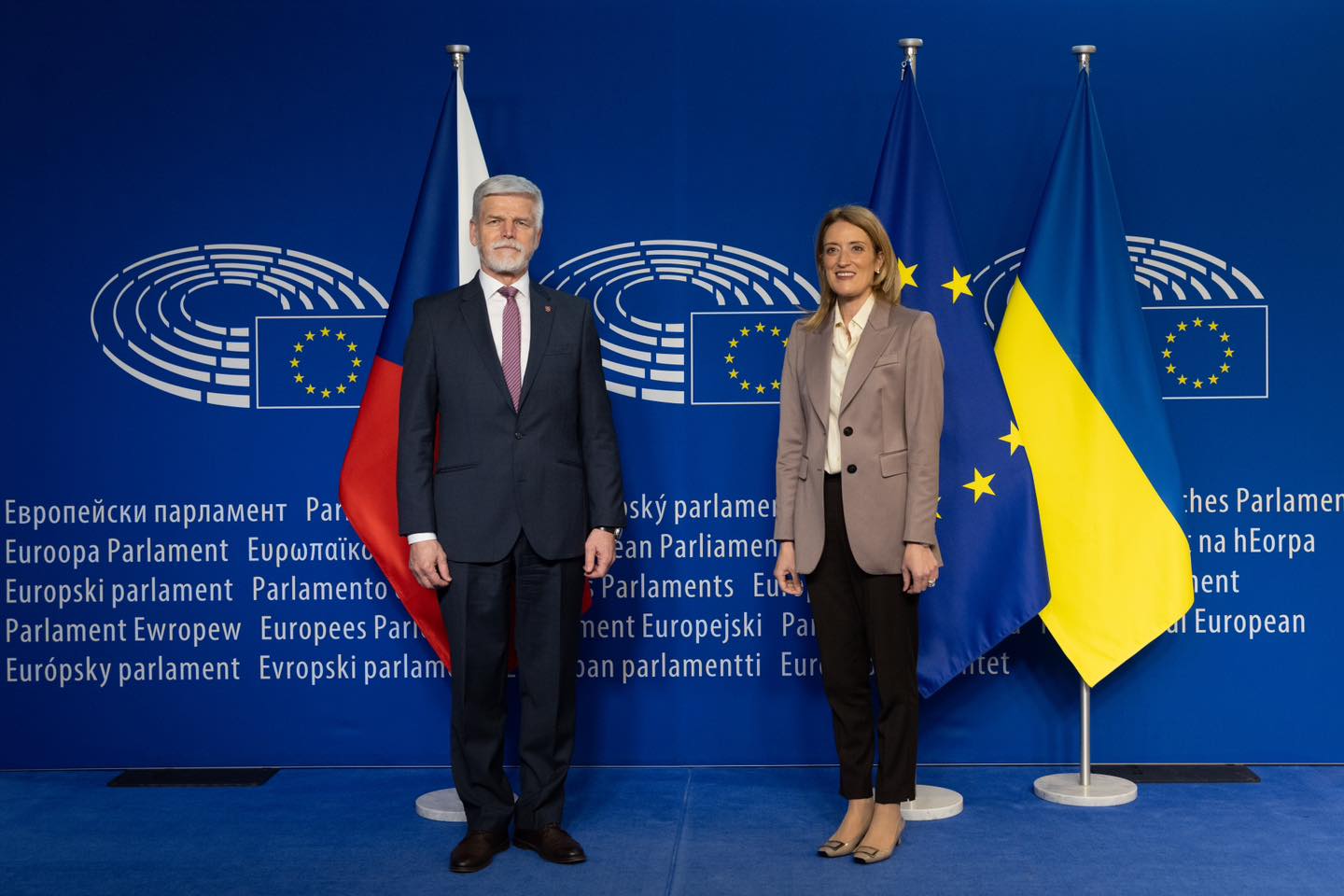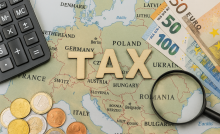Pavel wants Czechs to play key role in Western response to resurgent China


Czech President Petr Pavel called for a “joint and balanced” strategy between the US, Europe, and other democracies to address China’s growing economic and political power while avoiding divisive lines between them, on Friday 21st April.
During a visit to Brussels, Pavel discussed EU-US-China relations with European Council President Charles Michel and European Parliament President Roberta Metsola. “We should not draw any dividing lines between Europe, North America, and other democracies, but seek common approaches that will help us to create a sufficient balance to China’s economic, political, and financial strength,” Pavel told members of the Czech press on Friday.
Pavel wrote on Facebook that Metsola “assured me that Czechia is ready to play a much more active role in European affairs. We have something to offer, we can name the problems and we can design solutions. I support the advancement of the Czechs into key positions in the EU so that we can continue to maintain this constructive approach.”
Pavel unconvinced by Macron’s strategy for EU
While indirectly referring to French President Emmanuel Macron’s recent statements, Pavel emphasised that democratic countries should try to “change the rules of the game” and not accept what China is pushing for.
After a three-day state visit to China earlier in the month, Macron told reporters that Europe should not be “vassal” in US-China stand-offs, and avoid “the trap” of military and economic dependencies, and crises “that are not ours”.
According to Pavel, the EU and the US cannot do this alone, but by working together, they can create a sufficient economic, political, and military counterweight to China.
Pavel’s comments come at a time when the European Commission is trying to convince EU leaders to show unity in the face of a rising China after Macron stirred a fierce debate over ties with Beijing, and China sparked a new debate with comments questioning post-Soviet nations’ sovereignty.
Oceania, East Asia countries should be brought into fold – Pavel
Pavel believes that it is necessary to cooperate with Indo-Pacific powers such as Japan, South Korea, Australia, and New Zealand to create a force that China will respect. His views are echoed by some fellow EU leaders and experts who advocate for a stronger transatlantic partnership.
“Macron’s primordial distancing from the United States is not helpful, and in the context of the war in Ukraine, where the United States is still playing first fiddle in military support, words about strategic autonomy sometimes sound ridiculous,” Filip Sebok, a Czech expert on China at the Association for International Affairs, told Euractiv.
Sebok also pointed out that it is “paradoxical” that European leaders are travelling to Beijing in the hope of convincing China to pressure Putin to end the war in Ukraine.
Recent Posts
Ukraine arrests pair for spying for Hungary
The Security Service of Ukraine (SBU) has arrested two Ukrainian military veterans in Zakarpattia, west…
Hungary pays neighbours to avoid blackouts: lessons from Spain’s recent energy crisis
Hungary currently leads the world for share of solar energy in its energy mix, as…
Rama set to retain power in Albania election
Albanian Prime Minister Edi Rama has claimed victory in Albania’s parliamentary election on Sunday, 11…
Bosnia’s EU accession requires pro-EU coalition – high representative
The EU can formally begin accession negotiations with Bosnia and Herzegovina (BiH) when a stable…
Estonia climbs to second in global press freedom rankings, Czechia makes top ten
Estonia has surged to second place in the 2025 World Press Freedom Index, its best-ever…
Czechia delinks from Russian oil after 60 years
Czechia has halted imports of Russian crude oil delivered via the Druzhba pipelinefor the first…


